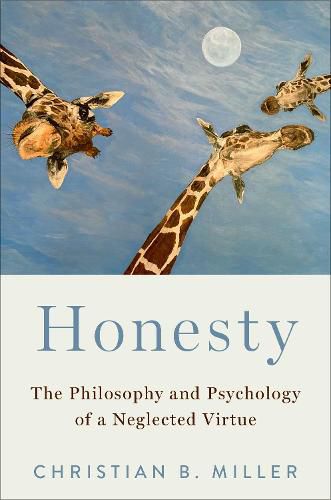Readings Newsletter
Become a Readings Member to make your shopping experience even easier.
Sign in or sign up for free!
You’re not far away from qualifying for FREE standard shipping within Australia
You’ve qualified for FREE standard shipping within Australia
The cart is loading…






Honesty is an important virtue. Parents want to develop it in their children. Close relationships depend upon it. Employers value it in their employees. Surprisingly, however, philosophers have said very little about the virtue of honesty over the past fifty years. In this book, Christian B. Miller aims to draw much greater attention to this neglected virtue. The first part of the book looks at the concept of honesty. It takes up questions such as: What does honesty involve? What are the motives of an honest person? How does practical wisdom relate to honesty? Miller explores what connects the many sides of honesty, including not lying, not stealing, not breaking promises, not misleading others, and not cheating. He argues that the honest person reliably does not intentionally distort the facts as she takes them to be. Miller then examines the empirical psychology of honesty. He takes up the question of whether most people are honest, dishonest, or somewhere in between. Drawing extensively on recent studies of cheating and lying, the model Miller articulates ultimately implies that most of us have a long way to go to reach an honest character. Honesty: The Philosophy and Psychology of a Neglected Virtue provides both a richer understanding of what our character looks like, as well as what the goal of being an honest person actually involves. Miller then leaves it up to us to decide if we want to take steps to shrink the character gap between the two.
$9.00 standard shipping within Australia
FREE standard shipping within Australia for orders over $100.00
Express & International shipping calculated at checkout
Honesty is an important virtue. Parents want to develop it in their children. Close relationships depend upon it. Employers value it in their employees. Surprisingly, however, philosophers have said very little about the virtue of honesty over the past fifty years. In this book, Christian B. Miller aims to draw much greater attention to this neglected virtue. The first part of the book looks at the concept of honesty. It takes up questions such as: What does honesty involve? What are the motives of an honest person? How does practical wisdom relate to honesty? Miller explores what connects the many sides of honesty, including not lying, not stealing, not breaking promises, not misleading others, and not cheating. He argues that the honest person reliably does not intentionally distort the facts as she takes them to be. Miller then examines the empirical psychology of honesty. He takes up the question of whether most people are honest, dishonest, or somewhere in between. Drawing extensively on recent studies of cheating and lying, the model Miller articulates ultimately implies that most of us have a long way to go to reach an honest character. Honesty: The Philosophy and Psychology of a Neglected Virtue provides both a richer understanding of what our character looks like, as well as what the goal of being an honest person actually involves. Miller then leaves it up to us to decide if we want to take steps to shrink the character gap between the two.